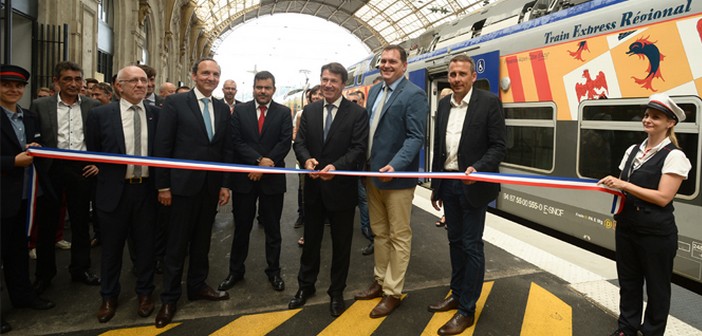During his electoral campaign for the presidency of the PACA Region, Christian Estrosi highlighted local rail transport as one of his key mandates.
It is true that this service is essential for the mobility and attractiveness of the region, and historically, its quality has been far from the required standard.
A few months later, beyond some modest adjustments and superficial reorganization, nothing has really changed structurally.
The improvements, though always welcome, have remained marginal: the upcoming construction of a maintenance center in the eastern part of the region which will enhance organization, compensation for users in the event of delays and cancellations, transport security with the construction of two Urban Supervision Centers at Marseille and Nice stations, widespread video surveillance, creation of mobile field teams (200 agents), and the installation of anti-fraud turnstiles (a 1-point drop in fraud since then…which is fortunate, but not an exceptional achievement).
Christian Estrosi, as known, enjoys challenging competitors or adversaries, savoring the role of commander in confrontations.
The contract binding the Region to the SNCF for TER service expires on December 31. He announces the termination of negotiations with SNCF.
He believes the transport provider delivers poor service quality, and from November 3, a resolution will be submitted to regional councilors to cut 36 million euros from the amount paid to SNCF for 2016, which was initially set at 291 million euros.
The future? The head of the regional executive announces the beginning of a discussion on opening up to competition in 2019 and exploring alternative modes on certain lines.
In fact, thanks to the European directive, other operators could apply, and the experience of the Macron law shows that for certain routes, buses can offer a less costly, more flexible, and more targeted service than trains (not to mention the huge difference in fixed capital costs for investments).
Moreover, the Region already owns the Chemins de Provence, so it could directly manage some railway segments.
For Christian Estrosi, the responsibilities are clear: “The real issue is the inability of the SNCF to implement the necessary resources to meet its commitments, the Region’s demands, and the needs of the users.”
If the responsibilities are clear, so are the tactical choices: making a strong impact to challenge the adversary, then negotiating from a position of strength by threatening to leave the table if his stances are not accepted.
In short, asserting his power. Furthermore, the regional president is not a fan of Vladimir Putin, a figure he willingly draws inspiration from.
And if the presidential election turns out as he hopes, perhaps it will be up to him, the very next day, to tell SNCF what to do and how to do it.


